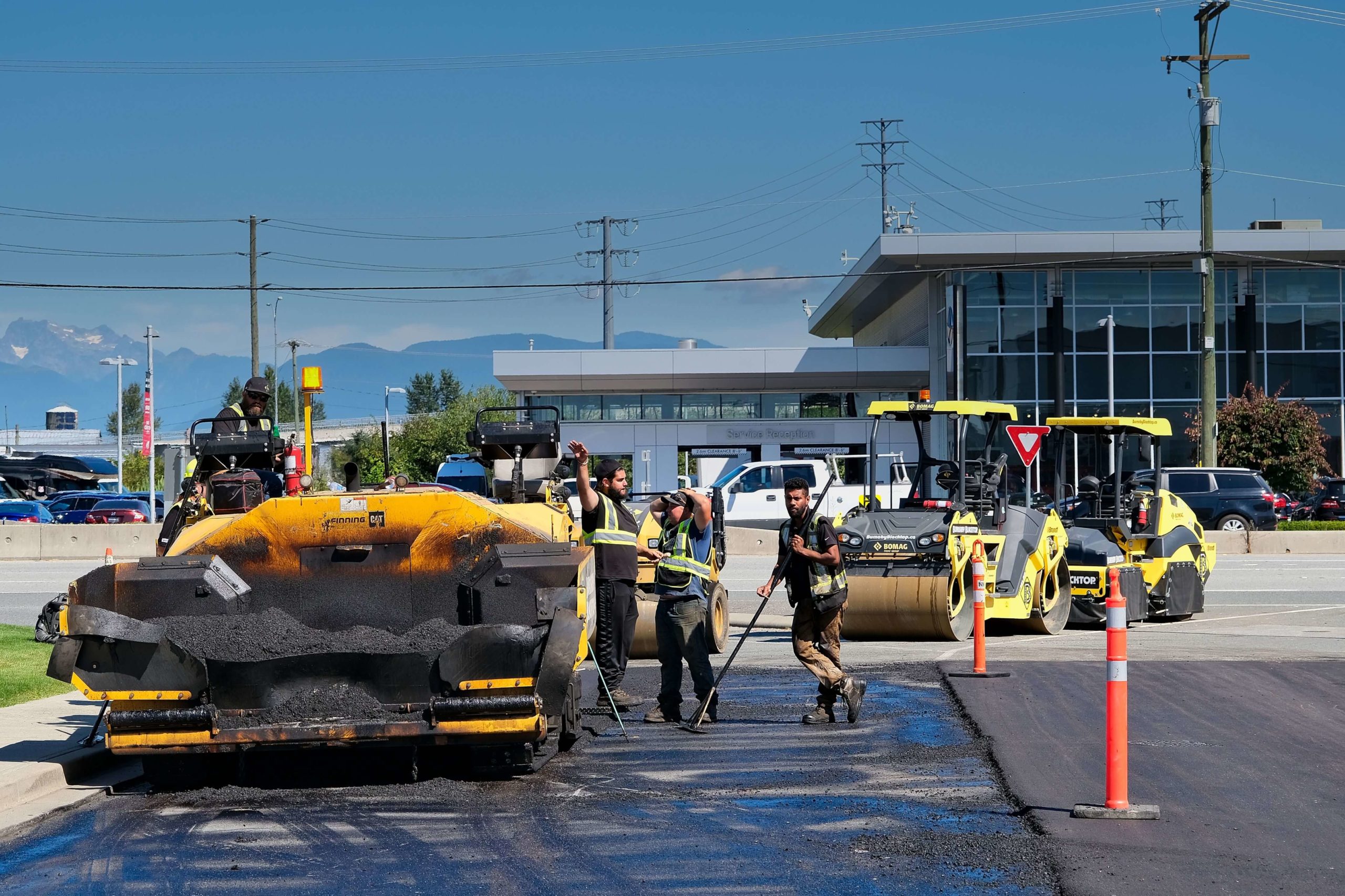Make The Most Of Safety with Angle Parking Lot: Superior Asphalt Sealing
Make The Most Of Safety with Angle Parking Lot: Superior Asphalt Sealing
Blog Article
Cold Mix Asphalt Vs. Hot Mix Asphalt: Which Is Right for You?

Structure Differences
Cold mix and warm mix asphalts differ dramatically in their structure, with unique qualities that influence their performance and applications. Cold mix asphalt is created by emulsifying the asphalt binder with water and an emulsifying representative prior to blending it with aggregate. This technique enables the asphalt to be practical at lower temperature levels, making it excellent for temporary repair work and for usage in colder weather. Warm mix asphalt, on the various other hand, is manufactured at heats, commonly between 300-350 ° F, which aids to attain better compaction and a more resilient end product. The warm mix asphalt manufacturing procedure involves heating the accumulation and asphalt binder independently before combining them at the asphalt plant.
Additionally, cold mix asphalt has a tendency to be much less dense and more flexible than hot mix asphalt. This flexibility makes it much better fit for areas with higher levels of activity, such as driveways or roads with heavy traffic. In contrast, hot mix asphalt is understood for its high sturdiness and resistance to rutting and splitting, making it a favored option for freeways and high-traffic roads where long life is crucial.
Installment Refine Variances
The process of installing cold mix and warm mix asphalt shows noteworthy variations in their needs and treatments. Cold mix asphalt, being an extra versatile material, can be used directly from the bag or container onto the gap or harmed area. It calls for marginal preparation work, such as cleaning the location and compacting the cold blend with hand tools. This makes it a convenient alternative for temporary and quick solutions. On the other hand, hot mix asphalt demands a much more sophisticated installation procedure. It includes heating the mix to heats prior to laying it down on an effectively prepared base. The prep work includes condensing the base, applying a tack layer, and using hefty machinery like pavers and compactors for a resilient and smooth coating. Due to the home heating demands, warm mix asphalt installations are commonly executed by professionals with specific equipment, making sure an extra structurally sound and long-term outcome.
Sturdiness and Long Life Factors
When thinking about asphalt alternatives, resilience and longevity are crucial factors to review for enduring sidewalk performance. Warm mix asphalt (HMA) is understood for its extraordinary durability and long life.
In regards to long life, HMA commonly exceeds CMA because of its premium stamina and resistance homes. HMA pavements have a longer solution life, needing less regular repair work and maintenance, which can equate to cost savings in the future. Additionally, HMA pavements are more quickly personalized to fulfill certain project needs, even helpful resources more boosting their longevity.
Expense Factors To Consider
Thinking about the economic implications is a crucial element when evaluating the option in between hot mix asphalt (HMA) and cold mix asphalt (CMA) for pavement tasks. While the initial expense of hot mix asphalt is normally greater than that of chilly mix asphalt, HMA usually provides a much more cost-effective service over time as a result of its superior longevity and longevity. HMA is understood for its capability to hold up against hefty web traffic tons and rough climate condition, minimizing the demand for frequent repair work and maintenance. On the various other hand, cold mix asphalt is more budget friendly ahead of time yet might require more frequent patching and resurfacing, resulting in higher maintenance costs in time.
In addition to product costs, it's essential to think about the expenses connected with setup and upkeep when comparing HMA and click here to find out more CMA. Inevitably, the decision in between HMA and CMA ought to take into account not just the preliminary cost however also the long-lasting financial ramifications to determine the most cost-effective alternative for the specific pavement task.
Environmental Impact Contrast
Comparison of the environmental impacts in between warm mix asphalt (HMA) and cool mix asphalt (CMA) discloses distinctive distinctions in sustainability techniques. HMA production requires high temperatures, leading to increased energy usage and greenhouse gas exhausts.
Furthermore, the use of CMA often entails reusing existing asphalt sidewalk, promoting source conservation and reducing the amount of waste sent to garbage dumps. By deciding for CMA over HMA, road construction tasks can add positively to ecological conservation efforts.
Conclusion
In conclusion, the option between cool mix asphalt (CMA) and hot mix asphalt (HMA) depends upon numerous aspects such as structure, installment process, toughness, longevity, expense, and environmental influence. cold mix asphalt. While CMA uses a cost-effective and quick option for small repairs, HMA makes sure premium durability and durability for hefty website traffic areas. Think about these aspects meticulously to check my blog identify which sort of asphalt is the ideal selection for your paving needs

Taking into consideration the monetary effects is a vital aspect when reviewing the choice between warm mix asphalt (HMA) and cold mix asphalt (CMA) for sidewalk projects. While the preliminary price of hot mix asphalt is usually higher than that of cool mix asphalt, HMA frequently gives a more economical remedy in the long run due to its exceptional longevity and longevity. asphalt patch repair.Contrast of the ecological effects between hot mix asphalt (HMA) and chilly mix asphalt (CMA) discloses distinctive distinctions in sustainability practices.In verdict, the selection between cold mix asphalt (CMA) and hot mix asphalt (HMA) depends on different factors such as composition, setup process, toughness, long life, price, and environmental impact
Report this page